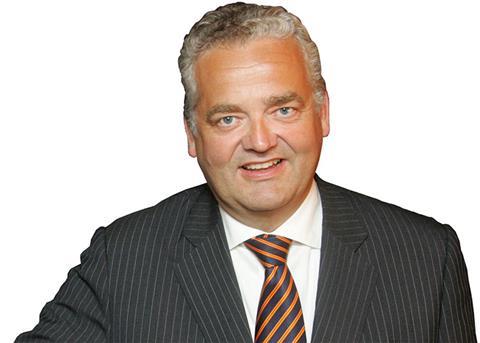RPM Freight Systems has appointed Frits Mehrtens as managing director for Europe, where he will focus on aligning operations for significant growth in the finished vehicle logistics sector. With over 30 years of experience, Mehrtens aims to enhance sales, improve collaboration and prioritise sustainability in response to industry challenges.
RPM has appointed Frits Mehrtens as its new managing director for Europe, positioning him to steer the company through the rapidly evolving landscape of finished vehicle logistics. Mehrtens, who just took up the role earlier this month [October 2024], brings over 30 years of experience in the sector and an intimate knowledge of RPM, having worked closely with the company for several years as a consultant.
Prior to joining RPM, Mehrtens held prominent roles at notable companies such as Broekman and Cobelfret and served as the president of ECG. For the past 13 years, he has operated as an independent entrepreneur, providing consultancy services across the industry.
His appointment with RPM comes as the company embarks on plans to grow its operations, supported by new investment from Trive Capital and Bluejay Capital Partners. With a strong focus on automotive logistics, especially vehicle logistics, RPM specialises in freight brokerage, connecting shippers with carriers for truckload, less-than-truckload and intermodal transportation. “The aim is to quadruple the company’s size in three to four years,” Mehrtens shared with Automotive Logistics.

Mehrtens’ immediate focus is on aligning RPM’s European operations to support its expansion goal. “The first aim is to boost sales, and that’s not something that happens overnight – it takes time,” Mehrtens explained. “We’re assessing our position across the board, and if necessary, we may need to invest in assets to better support our clients. This could include vehicle compounds and port facilities. While it’s too early to say exactly which direction we’ll take, as long as these decisions help increase sales, turnover, and profitability we will pursue them.”
The European finished vehicle logistics sector is grappling with significant structural challenges, particularly in terms of capacity constraints. These challenges have been amplified by fluctuating OEM production schedules, which tend to peak toward the end of financial quarters. This puts immense pressure on logistics providers, leading to bottlenecks across supply chains. Mehrtens highlighted RPM’s capacity to adapt quickly in these volatile conditions. “Our agility, supported by a strong network, gives us an edge in managing volatility, something vital in this market,” he said. Still, he stressed that the broader industry requires better coordination. “It’s crucial that OEMs and logistics providers collaborate more closely to improve planning and reduce the strain on supply chains.”
Another significant trend reshaping the logistics landscape is the rise of electric vehicles (EVs). While EVs require similar transport infrastructure to conventional vehicles, their increasing numbers are putting added strain on logistics networks, especially at critical transit points. Major European ports, including Antwerp-Bruges and Rotterdam, are experiencing significant congestion as the volume of imports, particularly from China, rises. “The influx of vehicles at ports is causing bottlenecks, and this is where we need to look at alternative solutions, such as inland terminals,” Mehrtens explained. He sees inland terminals as a vital component of a more integrated and flexible logistics network.
Sustainability remains a top priority for RPM. The European logistics sector is under increasing pressure to decarbonise, with initiatives such as the shift towards electric transport trucks. “We’re actively looking at ways to optimise our use of rail and short-sea shipping,” Mehrtens stated. However, he pointed out that rail freight in Europe is underperforming due to limited capacity and competition with passenger services, especially in countries like Germany. “Rail needs to play a much bigger role in logistics if we’re going to meet decarbonisation goals. Right now, the infrastructure just isn’t where it needs to be.”
Beyond infrastructure, Mehrtens emphasised the importance of long-term contracts between OEMs and logistics providers to ensure better planning and investment. “Without stable, multi-year agreements, it’s hard for logistics companies to invest confidently in new assets,” he said. “We need long-term commitments to make sure we’re prepared to meet growing demand.”
Under Mehrtens’ leadership, RPM is strategically focused on flexibility, collaboration and sustainability. He is confident that RPM will continue to adapt and thrive in Europe’s rapidly evolving logistics market. “It’s all about staying agile and being ready for what’s next,” he concluded.

























![Global[1]](https://d3n5uof8vony13.cloudfront.net/Pictures/web/a/d/s/global1_726550.svgz)













No comments yet